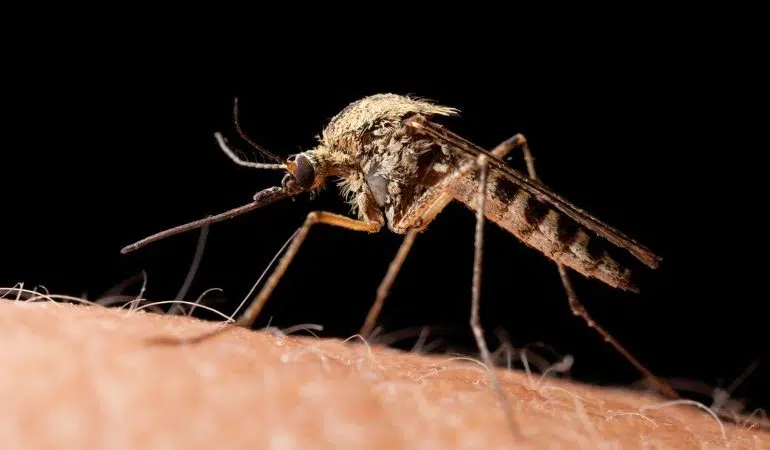TAZEWELL COUNTY, Ill. — A man in his 50s, that resides in Tazewell County, is hospitalized with West Nile virus, according to the Tazewell County Health Department (TCHD).
West Nile virus is transmitted through the bite of a Culex pipiens mosquito, commonly called a house mosquito.
Common symptoms of West Nile includes fever, nausea, headache and muscle aches.
According to TCHD, four out of five people infected with the virus will not show symptoms, but symptoms can last from a few days up to a few weeks for individuals that do experience them.
“It is important to remember that no matter what season it is, there is an ongoing risk of disease from a mosquito bite,” said TCHD Environmental Health Director, Evelyn Neavear.
“West Nile virus can cause serious illness in some people. It is important to take precautions to prevent mosquito bites, like wearing insect repellent and getting rid of stagnant water around your home.”
Precautions to Fight the Bite include practicing the three “R’s” – reduce, repel, and report.
REDUCE – Make sure doors and windows have tight-fitting screens. Repair or replace screens that
have tears or other openings. Try to keep doors and windows shut. Eliminate, or refresh each week, all sources of standing water where mosquitoes can breed, including water in bird baths, ponds, flowerpots, wading pools, old tires, and any other containers.
REPEL – When outdoors, wear shoes and socks, long pants and a long-sleeved shirt, and apply insect
repellent that contains DEET, picaridin, oil of lemon eucalyptus, or IR 3535 according to label instructions. Consult a physician before using repellents on infants.
REPORT – Report locations where you see water sitting stagnant for more than a week such as
roadside ditches, flooded yards, and similar locations that may produce mosquitoes. The local health
department or city government may be able to add larvicide to the water, which will kill any mosquito larvae.
People older than 60 and individuals with weakened immune systems are at a higher risk for severe illness from West Nile virus.
TCHD tests mosquito pools throughout the county and dead birds from May 15 – Oct. 15 every year for the virus.




